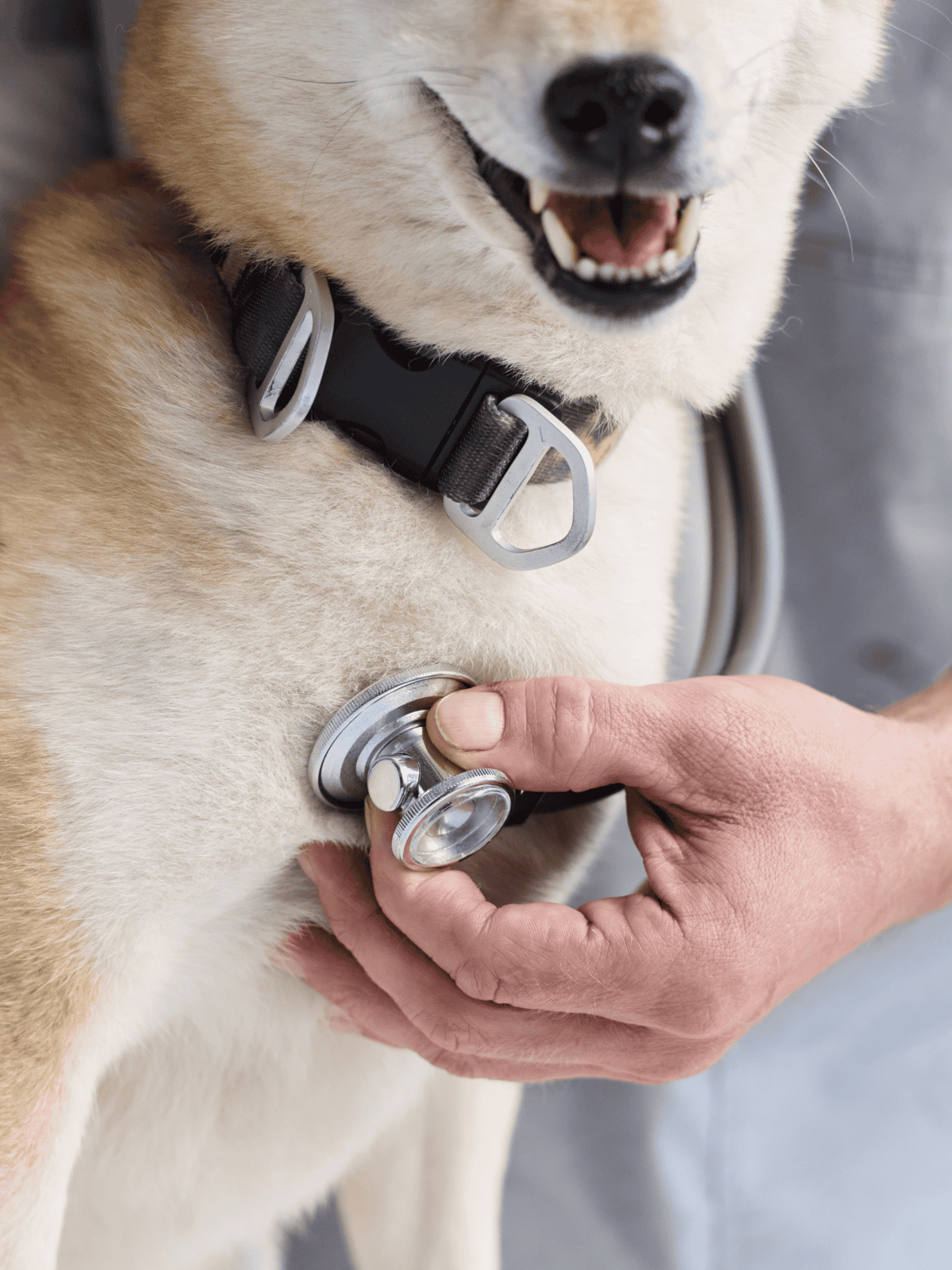Fish Oil for Dogs
Supplements are gaining popularity among dog owners who want to improve their pets’ health. Fish oil stands out as a significant choice due to its numerous potential benefits. Many people now include it in their dogs’ daily diets, aiming to enhance overall well-being.

Understanding which supplements to use is important for ensuring pets stay healthy and active. Fish oil, rich in essential nutrients, is becoming a staple in many canine diets, showing promise for boosting health outcomes.
Nutritional Composition of Fish Oil
Fish oil is rich in nutrients that can benefit dogs. It primarily contains omega-3 fatty acids, including EPA and DHA. These components are essential for promoting good health in dogs.
Importance of Omega-3 Fatty Acids
Omega-3 fatty acids are crucial for dogs’ health. They support heart health, aid brain function, and help with joint inflammation. Fatty acids are not made naturally in the body, so they must come from the dog’s diet.

These acids can also boost the immune system. Regular intake can improve skin condition, making the coat shiny and healthy. Including omega-3s in a dog’s diet is a simple way to promote overall well-being.
EPA and DHA Content
EPA (eicosapentaenoic acid) and DHA (docosahexaenoic acid) are the key omega-3s in fish oil. They have specific roles in enhancing health. EPA is known for reducing inflammation and helping with arthritis symptoms. It also supports healthy skin and fur.

DHA is important for brain development, particularly in puppies. This makes it vital for pregnant dogs or young pups. A diet that includes DHA can improve cognitive function in older dogs, too. Both acids together provide a strong health benefit.
Benefits of Fish Oil for Dogs
Fish oil is beneficial for dogs due to its essential omega-3 fatty acids. These nutrients can improve skin and coat health, support joint mobility, promote heart health, and enhance cognitive function. Including fish oil in a dog’s diet might lead to a healthier, happier pet.
Enhancement of Skin and Coat Health
Fish oil is rich in omega-3 fatty acids like EPA and DHA, which help maintain a dog’s healthy skin and shiny coat. Regular intake can reduce itchiness and dryness, easing irritation caused by allergies or skin conditions. The oil shields the skin, acting as a barrier against infections and inflammations.

For dogs experiencing flaky or dry skin, fish oil offers significant relief. A healthier coat also tends to shed less, minimizing hair loss and maintaining cleanliness.
Support for Joint Mobility
Many dogs develop joint problems as they age, leading to discomfort and stiffness. Fish oil’s anti-inflammatory properties help ease inflammation in joints, improving a dog’s mobility. This can be especially beneficial for breeds prone to arthritis.

By adding fish oil to a dog’s diet, owners might see their pets move more easily and play energetically. Dogs experiencing joint pain may find relief from stiffness and discomfort, aiding in daily activities and overall well-being.
Promotion of Heart Health
Heart health is crucial for a dog’s well-being, and fish oil supports this by maintaining healthy blood pressure and reducing triglyceride levels. Omega-3 fatty acids improve circulation, helping to keep a dog’s cardiovascular system in good condition.

Regularly incorporating fish oil into meals provides essential nutrients that benefit the heart. For dogs with existing heart conditions, fish oil may aid in managing symptoms, supporting a healthier, longer life.
Cognitive Function Improvement
Cognitive decline is a concern for aging dogs, similar to humans. Fish oil can aid brain health by supporting memory and learning abilities. The DHA in fish oil plays a key role in maintaining healthy brain cells, enhancing a dog’s cognitive function.

Puppies, as well as senior dogs, can benefit, with potential improvements in focus and training response. By including fish oil in their diets, owners may notice sharper cognitive function, contributing to their pets’ overall quality of life.
Enjoying this read?
We publish this content for free to generate interest in our Premium members' area. By subscribing, you can ask the writer any questions related to pet care and this article, get access to 100+ Premium Pet Care Guides and go Ad-Free with DogFix Premium for $2.99.
Choosing the Right Fish Oil
Finding the best fish oil for dogs involves understanding the types available, examining purity and concentration, and checking product quality. Providing these factors can help ensure the supplement supports your dog’s health effectively.
Types of Fish Oil
Understanding the different types of fish oil can help in making an informed choice. There are three main types: natural triglyceride oil, ethyl ester oil, and synthetic triglyceride oil. Natural triglyceride oil is the least processed form, making it easier for dogs to absorb. Ethyl ester oil is often more refined, providing higher concentrations of omega-3s. Synthetic triglyceride oil may have variable absorption rates.

Consider the specific needs of your dog when choosing between these types. Each has unique benefits, but the goal is to provide an effective and safe source of omega-3 fatty acids.
Understanding Purity and Concentration
Purity and concentration are critical factors to consider to ensure safety and effectiveness. Purity refers to the absence of contaminants like mercury, PCBs, and dioxins. It’s important that the fish oil has been tested for these toxins.

Look for products marked with the term “molecularly distilled” as this process minimizes impurities. Concentration is about how much omega-3 each serving provides. Higher concentrations mean more omega-3 for the same amount of oil.

Checking labels is vital. Take note of EPA and DHA levels, which are the active ingredients responsible for the health benefits. Confirm that the product provides adequate doses for your dog’s size and health needs.
Assessing Product Quality
Examining the overall product quality helps ensure that what you’re giving your dog is beneficial and safe. First, check for third-party testing or certification. Organizations like the National Animal Supplement Council (NASC) provide assurance of quality.

Shelf life is another important indicator. Choose fish oil with an expiration date that ensures freshness. Stale fish oil can lose effectiveness and potentially be harmful. Look for customer reviews and testimonials on the manufacturer’s reliability.

Research the brand’s reputation through trusted sources. Ensuring the source and processing methods of the fish oil are safe and transparent is critical to making a sound decision for your dog’s health.
How to Provide Fish Oil to Dogs
Dogs can benefit from adding fish oil to their diet. It is a good source of omega-3 fatty acids. Most regular dog foods primarily contain omega-6 fatty acids from animal fats and only small amounts of omega-3s. Fish oil can be a cost-effective way to ensure dogs get more omega-3s.

Fish oil can be mixed into wet dog food. The amount should follow the instructions on the package to ensure proper dosing. Fish oil also comes in liquid and capsule forms that can be given by mouth. It can be given with food or alone.

Some dogs may experience stomach upset. Signs include drooling, licking jowls, or vomiting. If this happens, consult a vet to see if fish oil should be given with food or skipped altogether. Regular administration of fish oil may take a few weeks to show full benefits, although some improvements might be noticed sooner. Always consult the packaging and your vet for the best advice for your dog.

The correct amount of fish oil for a dog depends on the type of supplement used and the dog’s individual needs. Many supplements for dogs have instructions on their labels. It’s crucial to discuss with a veterinarian before adding any supplements to a dog’s diet.
Possible Side Effects of Fish Oil
Fish oil might not be suitable for every dog’s stomach. Higher doses or dogs with sensitive digestion could lead to problems like diarrhea. If this happens, it might be time to consider another source of omega fatty acids.

Even if a dog seems to handle fish oil well at first, symptoms such as drooling, lip licking, pacing, restlessness, or vomiting could indicate nausea. If any of these symptoms or diarrhea occur, it’s important to stop the supplements. Contacting a vet can help decide what to do next.
Interactions with Medications and Other Supplements
Fish oil can benefit dogs, but it is important to consider interactions with medications and other supplements. Potential issues can arise, so proper consultation and coordination are essential.
Consulting with a Veterinarian
Before adding fish oil to a dog’s diet, it’s wise to consult a veterinarian. They can give advice on proper dosages and check how fish oil might interact with medications like blood thinners or anti-inflammatories.

Some dogs may have specific health conditions that require special attention. Veterinarians can monitor these conditions, and any changes that fish oil supplementation might cause. If other supplements are being used, a vet’s input can prevent negative interactions. Professional guidance ensures that adding fish oil will be safe and beneficial for the dog.
Coordinating with Other Treatments
Coordination is key when using fish oil alongside other treatments. For instance, dogs taking supplements like vitamin E may require adjustments since fish oil can interact with fat-soluble vitamins.

Vets might recommend a schedule to avoid possible conflicts. Coordinating the timing of fish oil with medication doses can help maintain their effectiveness. Keeping a list of all medications and supplements helps track interactions.
Owners should follow any tailored recommendations for supplement timing and dosage to ensure they support the dog’s health without unintended effects.
Fish Oil for Dogs Questions and Answers
Which Foods Safe for Dogs Have Natural Fish Oil?
Fish oil, rich in EPA and DHA, can be naturally found in foods like salmon, sardines, and certain anchovies. Dogs often enjoy these as tasty snacks. It’s important to check with a vet before adding these to your dog’s diet, as they should be given in appropriate forms and amounts.
Is it Safe to Give Dogs Fish Oil Meant for Humans?
Human fish oil supplements are not ideal for dogs, even though they come from the same sources. They are specifically made for humans, which means they have a different dose and might have extra ingredients that can harm dogs. Xylitol is one ingredient in human supplements that can be toxic to pets. It’s better to choose a fish oil product made just for dogs.
Can Fish Oil Help Dogs Who Are Anxious?
Research suggests omega-3 fatty acids might benefit dogs with anxiety. DHA, a component of fish oil, is important for mood regulation in dogs. Fish oil has potential benefits, possibly easing anxiety and reducing unwanted behaviors. While training and certain medications are common for anxiety, fish oil could be a useful starting point for behavior improvement.
